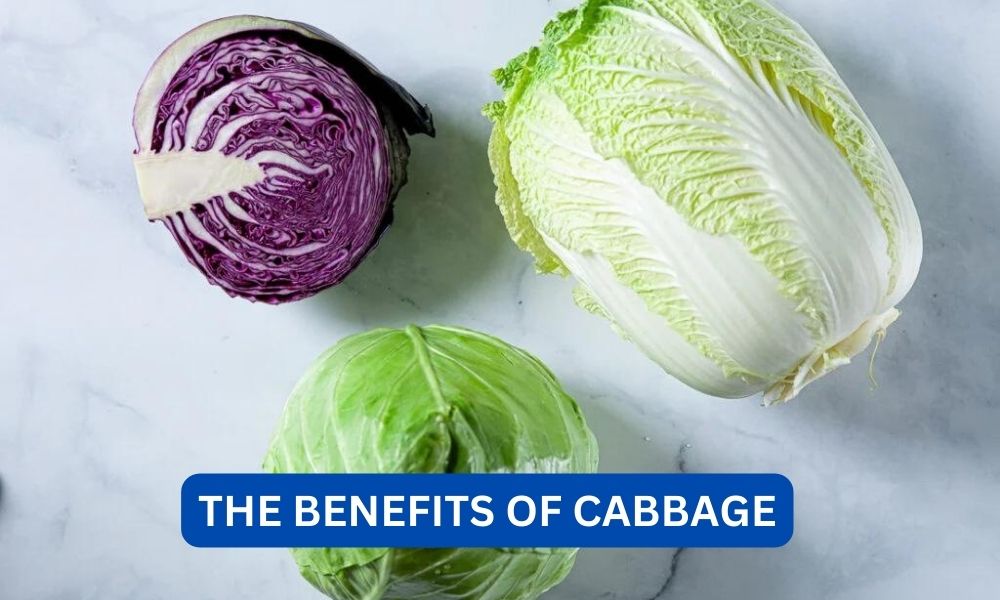Cabbage, a leafy green vegetable, is often overlooked in the world of superfoods. However, this humble vegetable is packed with essential nutrients and has been used for centuries for its medicinal properties. From aiding in weight loss to reducing the risk of chronic diseases, cabbage has numerous health benefits that make it a valuable addition to any diet. In this article, we will explore the various health benefits of cabbage and why you should consider incorporating it into your meals.
Contents
Nutritional Profile of Cabbage
Cabbage is a low-calorie vegetable, with only 22 calories per cup of shredded cabbage. It is also a good source of fiber, providing 2 grams per cup. Cabbage is rich in vitamins and minerals, including vitamin C, vitamin K, folate, and potassium. It also contains small amounts of calcium, iron, magnesium, and phosphorus.
One cup of shredded cabbage contains:
- 22 calories
- 2 grams of fiber
- 85% of the recommended daily intake (RDI) of vitamin C
- 54% of the RDI of vitamin K
- 10% of the RDI of folate
- 6% of the RDI of potassium
Health Benefits of Cabbage
1. Aids in Weight Loss
Cabbage is a low-calorie and high-fiber vegetable, making it an excellent addition to a weight loss diet. The high fiber content of cabbage helps you feel full for longer, reducing your appetite and preventing overeating. Additionally, cabbage is rich in antioxidants and phytochemicals that can help boost metabolism and burn fat.
Read:what are the benefits of collagenA study published in the Journal of the Academy of Nutrition and Dietetics found that consuming cruciferous vegetables, including cabbage, was associated with lower body mass index (BMI) and waist circumference in women. Another study showed that consuming cabbage juice for 12 weeks resulted in significant weight loss and reduced waist circumference in obese individuals.
2. Promotes Digestive Health
Cabbage is a good source of fiber, which is essential for maintaining a healthy digestive system. Fiber helps regulate bowel movements, preventing constipation and promoting regularity. It also acts as a prebiotic, feeding the beneficial bacteria in your gut and promoting a healthy balance of gut flora.
Moreover, cabbage contains a compound called sulforaphane, which has been shown to have anti-inflammatory properties and may help protect against digestive disorders such as ulcerative colitis and Crohn’s disease.
3. Boosts Immune System
Cabbage is rich in vitamin C, an essential nutrient for a healthy immune system. Vitamin C is a powerful antioxidant that helps protect cells from damage and supports the production of white blood cells, which are responsible for fighting off infections and diseases.
A study published in the Journal of the American College of Nutrition found that consuming vitamin C-rich foods, such as cabbage, can help reduce the severity and duration of the common cold. Another study showed that vitamin C may also help prevent and treat respiratory infections, such as pneumonia and bronchitis.
Read:What are the benefits of not ejaculating for 30 days4. Reduces Inflammation
Inflammation is a natural response of the body to injury or infection. However, chronic inflammation can lead to various health problems, including heart disease, diabetes, and cancer. Cabbage contains compounds, such as sulforaphane and kaempferol, that have anti-inflammatory properties and may help reduce inflammation in the body.
A study published in the Journal of Agricultural and Food Chemistry found that cabbage extract reduced inflammation in mice with colitis, a type of inflammatory bowel disease. Another study showed that consuming cruciferous vegetables, including cabbage, was associated with lower levels of inflammation markers in the blood.
5. Protects Against Chronic Diseases
Cabbage is rich in antioxidants, which help protect cells from damage caused by free radicals. Free radicals are unstable molecules that can cause oxidative stress, leading to chronic diseases such as cancer, heart disease, and Alzheimer’s disease.
A study published in the Journal of Nutrition found that consuming cruciferous vegetables, including cabbage, was associated with a reduced risk of prostate cancer. Another study showed that consuming cabbage and other cruciferous vegetables was associated with a lower risk of breast cancer in postmenopausal women.
6. Supports Heart Health
Cabbage is a good source of potassium, a mineral that plays a crucial role in maintaining a healthy heart. Potassium helps regulate blood pressure by counteracting the effects of sodium and relaxing blood vessels. It also helps reduce the risk of stroke and heart disease.
Read:What are the benefits of eating blueberries?A study published in the American Journal of Clinical Nutrition found that consuming potassium-rich foods, such as cabbage, was associated with a lower risk of stroke. Another study showed that consuming cruciferous vegetables, including cabbage, was associated with a reduced risk of heart disease.
How to Incorporate Cabbage into Your Diet
Cabbage is a versatile vegetable that can be enjoyed in various ways. Here are some ideas on how to incorporate cabbage into your meals:
- Raw: Add shredded cabbage to salads or coleslaw for a crunchy and nutritious addition.
- Cooked: Sautee cabbage with other vegetables and protein for a quick and healthy stir-fry.
- Fermented: Make your own sauerkraut or kimchi using cabbage for a probiotic-rich condiment.
- Stuffed: Use cabbage leaves as a wrap for a low-carb and gluten-free alternative to tortillas or bread.
- Soup: Add cabbage to soups and stews for a hearty and nutritious meal.
Precautions and Side Effects
While cabbage is generally safe for consumption, there are a few precautions to keep in mind:
- Thyroid function: Cabbage contains goitrogens, compounds that can interfere with thyroid function. If you have an underactive thyroid, it is best to limit your intake of raw cabbage and cook it before consuming.
- Gas and bloating: Cabbage contains a type of carbohydrate that can cause gas and bloating in some individuals. If you experience these symptoms, try cooking cabbage or consuming it in smaller portions.
- Medication interactions: Cabbage contains vitamin K, which can interfere with blood-thinning medications. If you are taking blood thinners, consult with your doctor before consuming large amounts of cabbage.
Conclusion:
Cabbage may not be the most glamorous vegetable, but it certainly packs a punch when it comes to nutrition and health benefits. From aiding in weight loss to reducing the risk of chronic diseases, cabbage is a nutritional powerhouse that deserves a place on your plate. So, next time you’re at the grocery store, don’t overlook this humble vegetable and reap the many health benefits it has to offer.









